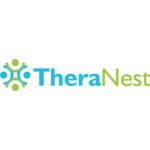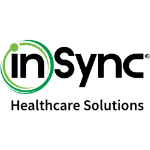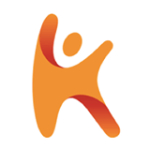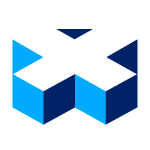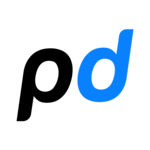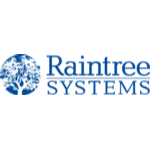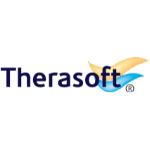List of Best Mental Health Software
Showing 10 of 18 productsSimplePractice is a practice management software designed to help professionals in the healthcare and wellness industry efficiently manage their daily tasks. With user-friendly features and a sleek interface, SimplePractice streamlines administrative...Read SimplePractice Reviews
TheraNest is a solution for managing your mental health practice. With its user-friendly interface and innovative features, TheraNest streamlines your administrative tasks and allows you to focus on what truly matters - helping your clients. Simplify...Read TheraNest Reviews
InSync EMR is a leading electronic medical records software designed to streamline and optimize the patient care process. With user-friendly features and a highly secure platform, InSync EMR helps healthcare providers effectively manage patient infor...Read InSync EMR Reviews
TheraPlatform is a leading platform designed for therapy professionals to easily manage and grow their practice. With a user-friendly interface and essential tools, TheraPlatform streamlines daily operations and enhances client experience. From sched...Read TheraPlatform Reviews
Kareo is a and innovative healthcare technology company that offers a wide range of solutions for healthcare providers. With its user-friendly software and customizable features, Kareo aims to simplify and streamline daily tasks, improve patient care...Read Kareo Reviews
Medics is a software designed specifically for healthcare professionals. With its advanced features and user-friendly interface, Medics streamlines the entire medical process, from patient registration to treatment and billing. Say goodbye to tedious...Read Medics Reviews
Practice Fusion is a user-friendly and innovative electronic health record (EHR) software that is designed to streamline the healthcare experience for both patients and practitioners. With its seamless interface and top-notch features, Practice Fusio...Read Practice Fusion Reviews
Power Diary, is a solution for managing your business and client appointments. With its user-friendly interface and powerful features, Power Diary streamlines your scheduling, billing, and client communication tasks, making your life easier and your...Read Power Diary Reviews
Raintree Practice, where we believe in simplifying the complex process of managing medical practices. Our software is designed to streamline workflows, increase efficiency, and improve patient care. With user-friendly features technology, Raintree Pr...Read Raintree Practice Reviews
Therasoft Online, is a solution for all your practice management needs. Developed specifically for healthcare professionals, Therasoft offers a user-friendly is a platform to streamline your administrative tasks, enhance client communication, and imp...Read Therasoft Online Reviews
- What Is Mental Health Software?
- Top Reasons Why Businesses Need Mental Health Software?
- What Are the Top Key Features of Mental Health Software?
- What Are the Top Benefits of Mental Health Software?
- What Are the Steps to Choose the Right Mental Health Software?
- What Are the Types of Mental Health Software for Different Industries?
- What Are the Technology Trends for Best Mental Health Software?
- What Are the Deployment Options for Mental Health Software?
What Is Mental Health Software?
Mental health software refers to a category of computer applications that have been specifically developed to assist individuals in recognizing, comprehending, and effectively regulating their emotional and mental well-being.
The majority of mental health billing software packages include cognitive behavioral therapy strategies, including relaxation techniques, journaling, and positive affirmations, to facilitate individuals in identifying their own emotions and actions, as well as to empower them to proactively address and regulate their mental well-being.
The purpose of these tools is to offer consumers a customized experience, offering individualized choices to enhance their comprehension of their mental well-being. The purpose of top mental health software also includes facilitating a virtual platform for individuals to anonymously share their narratives with others.
This practice contributes to the mitigation of societal prejudice surrounding the discussion of mental health, fostering an environment where individuals can engage in open dialogue and establish meaningful connections with others who share comparable experiences.
Top Reasons Why Businesses Need Mental Health Software?
1. Mental health software has the potential to offer employees a secure means of accessing confidential mental health services.
2. The identification of mental health concerns in the workplace might be beneficial for companies in mitigating potential workplace issues.
3. The technology has the capability to offer immediate and continuous monitoring of individuals' mental health conditions and the overall well-being of employees.
4. This capability enables businesses to formulate proactive plans aimed at preventing the occurrence of issues and effectively managing those who do encounter such issues.
5. The implementation of this approach has the potential to facilitate companies in providing tailored assistance to their employees, thereby enhancing their overall physical and mental wellness.
6. The best mental health software has the potential to facilitate the provision of mental health services, tailored assistance, and advice.
7. The system can offer computer resources and digital platforms to collect and analyze data.
8. The measurement of productivity levels can be beneficial in assessing and enhancing staff performance to achieve optimal outcomes.
9. The top mental health software has the potential to offer employees access to various tools that can aid in the management of their stress levels and emotional well-being.
10. This initiative promotes the timely identification of mental health concerns and the proactive mitigation of high-risk behaviors.
11. Mental health outcomes can be monitored by assessing many indicators, including performance metrics, attendance records, and levels of absence.
12. The provision of access to health professionals for intervention and the availability of spiritual care, if necessary, can offer employees valuable chances.
13. This practice has the potential to facilitate businesses in conducting regular assessments of their employees' mental well-being and fostering an environment that promotes open communication regarding mental health concerns.
14. The utilization of software for mental health professionals has the potential to mitigate the financial burdens associated with mental health concerns, including expenses related to medical treatment, diminished productivity, and absenteeism.
15. The utilization of mental health software has the potential to foster resilience, facilitate timely identification, and effectively address factors that may contribute to enhanced mental well-being within professional environments.
What Are the Top Key Features of Mental Health Software?
The top key features of mental health software are as follows:
1. Patient Management System: This functionality facilitates the administration of patient records, ensures the security of patient data, and enables the monitoring of appointments.
2. Clinical Documentation: This functionality enables healthcare professionals to efficiently generate and revise patient documentation in a timely and effective manner.
3. Scheduling and Care Coordination: The aforementioned functionality facilitates the monitoring of patient information, the generation of appointment notifications, and the establishment of a means for care providers to communicate with one another.
4. Secure Messaging: This functionality enables healthcare practitioners to transmit messages and updates to patients in a secure manner.
5. Multi-dimensional Analytic Tools: This feature encompasses several tools, such as scorecards and dashboards, which facilitate the analysis of results.
6. Multi-Platform Accessibility: This functionality allows physicians, healthcare professionals, and patients to conveniently access the program on various devices, regardless of time and location.
7. Care Team Collaboration: This functionality enables healthcare personnel to engage in effective communication with their counterparts in order to enhance the efficiency of patient care.
8. Electronic Billing: This functionality allows healthcare professionals to efficiently monitor billing data and produce invoices in a prompt and convenient manner.
9. Custom Reporting: This functionality enables healthcare professionals to generate personalized reports that can be customized to address the individual requirements of patients.
10. Security and Compliance: This feature offers a safe platform that adheres to the security and patient data standards of the industry.
What Are the Top Benefits of Mental Health Software?
1. Improved access to care: Mental health software facilitates remote access to therapeutic services, enabling patients to effectively monitor and sustain their mental well-being within the confines of their residences.
2. Improved care coordination: The utilization of top mental health software enables practitioners to have access to patient records and utilize better collaboration capabilities, hence optimizing the delivery of care and promoting the implementation of more efficient team-based therapies.
3. More comprehensive support: The utilization of mental health billing software has the potential to offer patients a more extensive and individualized form of therapy, thereby enhancing their overall experience through increased accessibility to a wide range of information and tools.
4. Increased patient engagement: The utilization of the best mental health software has the potential to enhance the efficacy of patient-clinician communication, while also offering enhanced educational tools that can foster patient empowerment.
5. Improved symptom tracking: The utilization of mental health software enables doctors to effectively monitor patient symptoms in real-time, hence enhancing the accuracy of diagnosis and facilitating informed treatment decisions.
6. Reduced costs: The utilization of this software has the potential to mitigate expenses linked to the provision of therapy and related services, while concurrently enhancing outcomes and diminishing rates of readmission.
What Are the Steps to Choose the Right Mental Health Software?
1. Identify the needs: One should consider the underlying objective of incorporating mental health software into a business, as well as the fundamental characteristics that define its functionality.
One should take into account the financial implications of the program, including its initial cost as well as the ongoing expenses related to maintenance and support.
2. Research the available options: After the identification of the primary requirements for the best mental health software, the subsequent step involves commencing research on the existing software solutions. It is advisable to examine both complimentary and subscription-based iterations, while also perusing evaluations from users, pros, and experts.
Furthermore, it is important to assess whether the activities or processes under consideration adhere to any applicable regulatory obligations.
3. Select a solution: Once a thorough comparison of various solutions has been conducted, accounting for additional features and associated expenses, the next step entails the selection of the most suitable top mental health software for the firm.
4. Test the software: Before reaching a conclusive determination, it is advisable to do a comprehensive evaluation of the software to ascertain its compatibility with the organization's requirements. It is advisable to contemplate the implementation of a pilot program to assess the efficacy of the software for regular utilization.
5. Implement the software: Following the completion of the testing phase, the subsequent step involves the implementation of the selected mental health practice software. It is advisable to provide training to personnel to familiarize them with the program, while also establishing protocols to safeguard data security and privacy.
What Are the Types of Mental Health Software for Different Industries?
Mental health software can be categorized into distinct sorts according to the specific industries it is tailored for.
The subsequent list comprises some prevalent categories of top mental health software that are now accessible:
1. Clinical Mental Health Software: The program in question has been specifically developed for professionals in the field of clinical practice, including psychotherapists and counselors. Its primary purpose is to facilitate the organization and maintenance of client records, document storage, progress report generation, and the tracking of client progress or setbacks.
2. Mental Health Practice Management Software: The best mental health software has been specifically developed to cater to mental health professionals operating inside private practices. Its features encompass contact and appointment administration, billing, telehealth capabilities, and reporting functionalities.
3. Mental Health Workforce Management Software: The purpose of this software is to facilitate the management of workforce-related tasks inside mental health organizations. These tasks include but are not limited to training and development, job scheduling, attendance monitoring, time management, and payroll administration.
4. Mental Health Education Software: The software in question has been specifically developed to cater to educational institutions. Its primary function is to facilitate the delivery of courses and training materials, as well as to oversee the management of assessment and grading processes.
Additionally, it serves as a repository for storing student records.
5. Mental Health Community Software: The primary objective of this program is to facilitate the provision of mental health support and services by community-based organizations. Its functionalities encompass information sharing, collaboration, support groups, resource management, and social networking.
6. Mental Health Assessment Software: The purpose of this software is to facilitate the evaluation of an individual's mental health requirements by mental health experts, utilizing either self-assessment tools or automated questionnaires.
7. Mental Health Analytics Software: The primary objective of this program is to facilitate data collection, analysis, and interpretation for mental health organizations. Its purpose is to offer valuable insights and identify trends that can inform strategic decision-making and enhance service provision.
What Are the Technology Trends for Best Mental Health Software?
The technological advancements in mental health software are subject to ongoing evolution. Over recent years, there has been a growing trend in the utilization of virtual reality within top mental health software, allowing therapists to generate simulated environments for their clients.
Moreover, the integration of artificial intelligence (AI) has been observed in several mental health interventions, wherein clients are provided with automated cognitive behavior therapy (CBT) to facilitate the identification and understanding of their cognitive processes and emotional responses.
In addition, the adoption of wearable technology has gained significant traction, allowing individuals to effectively track their stress levels and promptly receive feedback to make necessary behavioral adjustments. Wearable sensors can assess vital signs, such as heart rate, and provide individualized coaching from coaches.
In recent times, there has been a growing use of cloud-based services, which has facilitated enhanced availability of mental health services, while concurrently mitigating expenses and affording customers greater convenience in accessing such services.
In general, the utilization of digital technology is becoming more prevalent in best mental health software, to enhance operational effectiveness, therapeutic outcomes, and availability.
What Are the Deployment Options for Mental Health Software?
The available deployment choices for mental health software generally encompass two main approaches:
1. On-premise hosting: On-premise hosting refers to the practice of installing and maintaining software on the user's hardware infrastructure, necessitating the company or organization to assume responsibility for software management and regular updates.
2. Cloud-based hosting: Cloud-based hosting refers to the practice of having software hosted by a third-party provider in a secure and redundant environment. In this arrangement, the provider assumes responsibility for program maintenance and guarantees that the software is up-to-date.
Both alternatives provide users expedient access to the most recent iteration of the program, as well as the convenience of not being burdened with the responsibility of maintaining and overseeing their hardware infrastructure.

